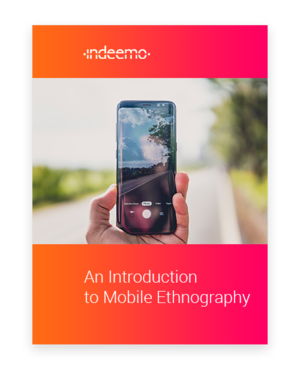Mobile Ethnography White Paper
Learn how Mobile Ethnography can supplement your research projects and generate richer contextual insights for your brands.

The process of securing employment in current times is done almost completely online. Job seekers begin their search for employment online, applying through various websites, boards and, e-advertising platforms. In many cases, job seekers will search, discover, apply and even attend interviews online.


Understanding the journey of job seekers in their quest for employment can be difficult given that all of their interactions throughout the application process are completed in their own time, at home and online.
When our client approached us they had launched a jobs website, but they were struggling to understand the behaviors, interactions, and expectations of job seekers in relation to their site. They realized that they needed to gain an in-the-moment understanding of just how job seekers were engaging with their new mobile website.
This meant getting these insights from an online user-group in the context of their own homes where they would usually undertake their online job search.
Our client’s objectives were to:
Understand the role that smartphones play in job seekers search for employment
Understand the motivations, behaviors, and expectations of job-seekers searching for jobs online using smartphones
Gain real-time feedback from job seekers on various features of a new mobile jobs website
30 Respondents
13 Tasks
1 Week
Tasking Strategy: Sequential Tasking

When our client approached us, we immediately suggested that our mobile screen-recording could form part of a design ethnography project that would get the mobile-usage insights that would meet their goals.
We suggested that they use a sequential task list, which would allow respondents to complete a series of 13 tasks over the course of a week. The respondents initially provided selfie-videos giving a personal insight into their career goals, job search, capturing their key motivations. Following these introductory tasks, the respondents completed a number of screen-recording tasks that first showed how they searched for jobs online. They then completed a number of tasks including searching and applying for a job, creating a resume and preparing for an interview on our client’s new website. As the respondents completed these tasks on their smartphone, our mobile screen-recording feature showed exactly how respondents navigated the website. Additionally, they were able to give in-the-moment feedback on their first impressions, their user experience and their navigation decisions using the voice-recording ability incorporated into our screen-recording feature.
By splitting their targets into 3 distinct user groups using Indeemo, our client was able to understand how the expectations and needs varied amongst job seekers.
Over the course of the week-long project, our client received over 400 media-rich uploads from 30 respondents. In particular, the mobile screen-recordings obtained from the project would allow them to completely understand users experience on their new mobile website. The ability to gain these mobile screen-recording insights from the natural settings of users proved highly successful in engaging the respondents for the duration of the project.
We’ve supported researchers trying to understand the path to purchase for everything from smartphones to domestic appliances to cars to hotels to garage doors and aquarium filtration systems!
The one thing they all have in common is that the journey is non-linear, random and omni-platform.



Learn how Mobile Ethnography can supplement your research projects and generate richer contextual insights for your brands.
